
Staying Safe While Trick-or-Treating this Halloween!
October 26, 2023
Warm Holiday Wishes to Our Wee College Community!
December 18, 2023Honoring Heroes with Heartfelt Understanding
Remembrance Day holds a significant place in our history, a day dedicated to honoring and remembering the brave men and women who sacrificed their lives for our freedom. For parents and educators, it can be a delicate task to communicate the importance of this day to children in a way that is both meaningful and age appropriate. Here are some thoughtful ways to engage children in understanding and appreciating the essence of Remembrance Day.
Start with the Basics:
Begin by explaining the basics of Remembrance Day – why it is observed, the significance of the poppy symbol, and the importance of remembering and honoring the sacrifices made by soldiers during times of war and conflict. Use age-appropriate language to convey the gravity of the day while ensuring they feel safe and secure.
Storytelling and Literature:
Children respond well to stories. Share age-appropriate books and stories that depict the experiences of soldiers and the meaning behind Remembrance Day. Choose narratives that emphasize courage, sacrifice, and the values that soldiers fought to protect. Discuss the emotions and challenges faced by soldiers and their families, fostering empathy, and understanding.
Below find examples of books for preschool age children on the importance of remembering.
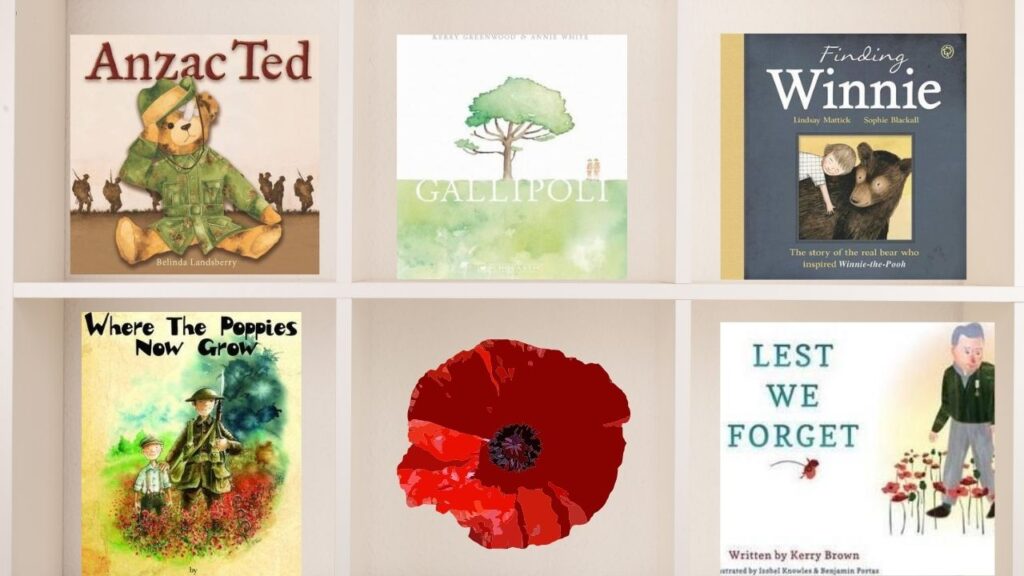
Create Art and Crafts:
Engage children in hands-on activities like creating poppy crafts. This not only provides a creative outlet but also serves as a visual reminder of the significance of Remembrance Day. Encourage them to ask questions about the colors of the poppy and explain that it represents the fields of poppies in Flanders where many soldiers fought during World War I.
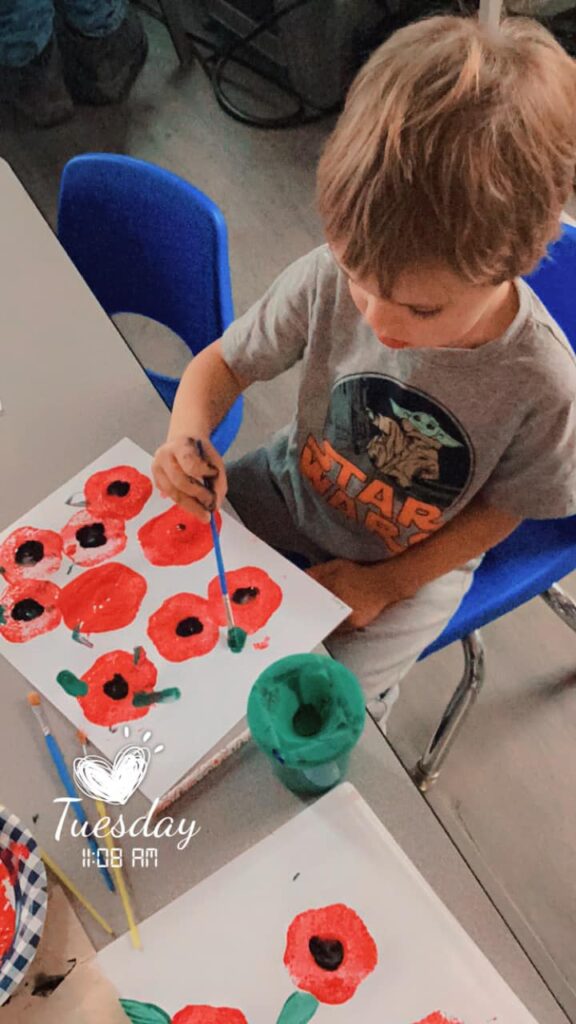
Attend Local Ceremonies:
Participate in local Remembrance Day ceremonies or parades. This allows children to witness the community coming together to pay respects, fostering a sense of unity and shared responsibility. Explain the symbolic acts during these events, such as the two minutes of silence, and help them understand the collective effort to honor those who served.
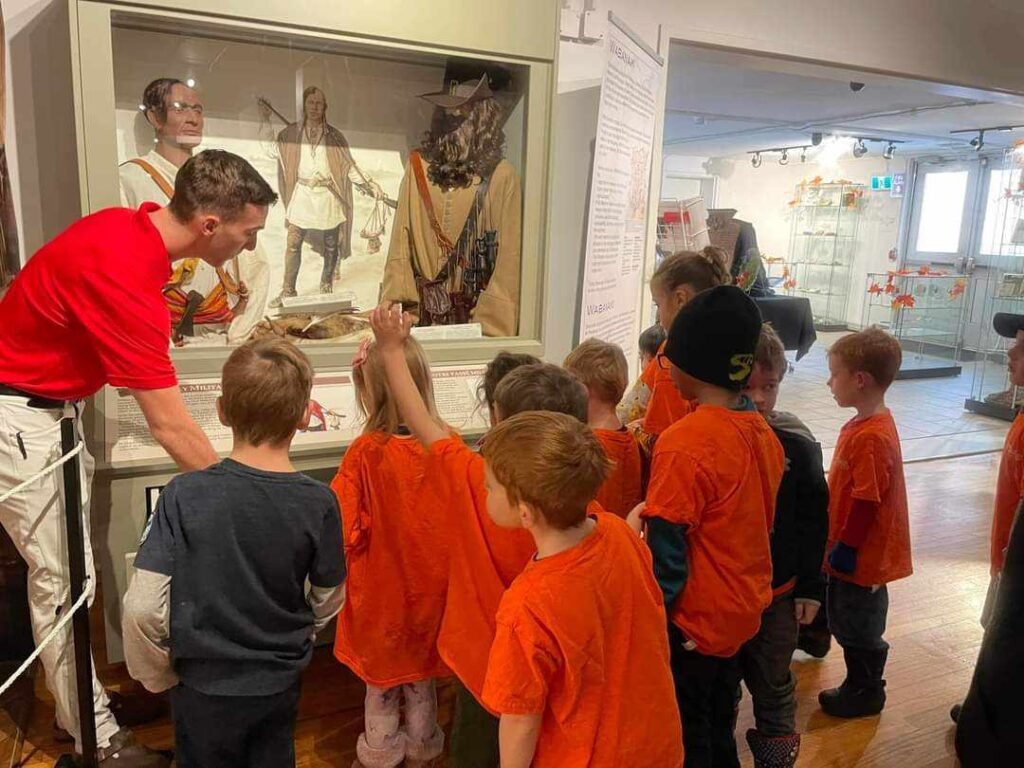
Connect to Personal Experiences:
Relate the concept of sacrifice to everyday situations. Help children understand the idea of giving up something for the greater good, whether it’s sharing toys or helping a friend. Drawing parallels between their actions and the sacrifices made by soldiers can make the concept more relatable.
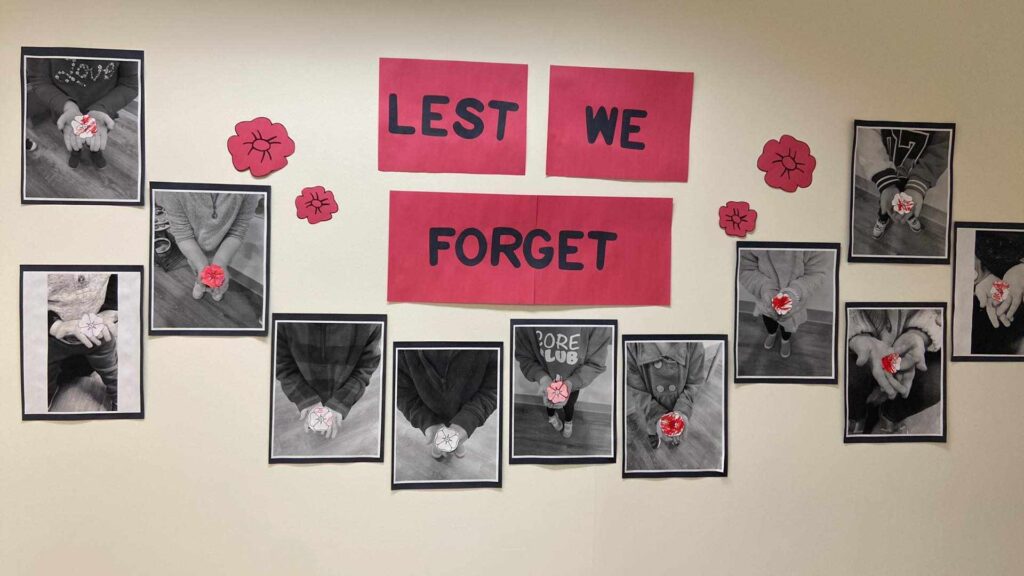
Encourage Questions:
Create an open and safe space for children to ask questions. Answer their inquiries honestly and age-appropriately. Acknowledge that war and loss are challenging topics but reassure them that Remembrance Day is about remembering and learning from the past to create a better future.
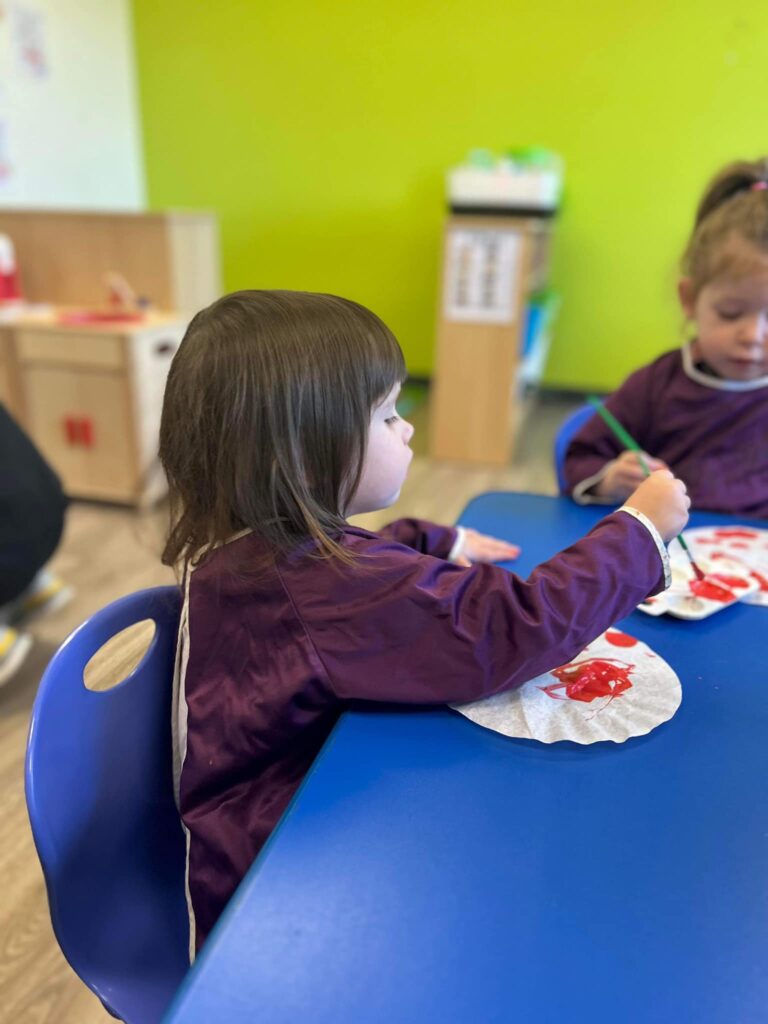
Express Gratitude:
Teach children the importance of gratitude by writing letters or drawing pictures for veterans or active-duty military personnel. This not only instills the value of appreciation but also connects them to real-life heroes
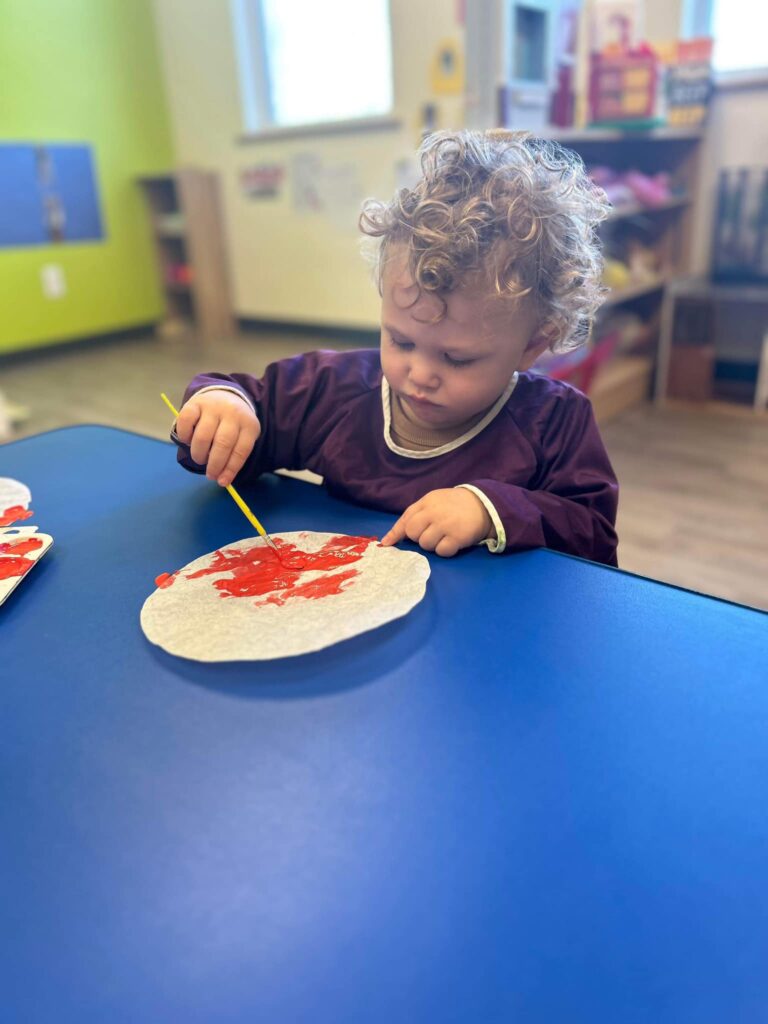
Remembrance Day provides an opportunity to instill in children the values of empathy, gratitude, and understanding. By approaching the topic with sensitivity, using age-appropriate resources, and incorporating hands-on activities, we can help children develop a meaningful connection to this important day and carry the spirit of remembrance into the future.



